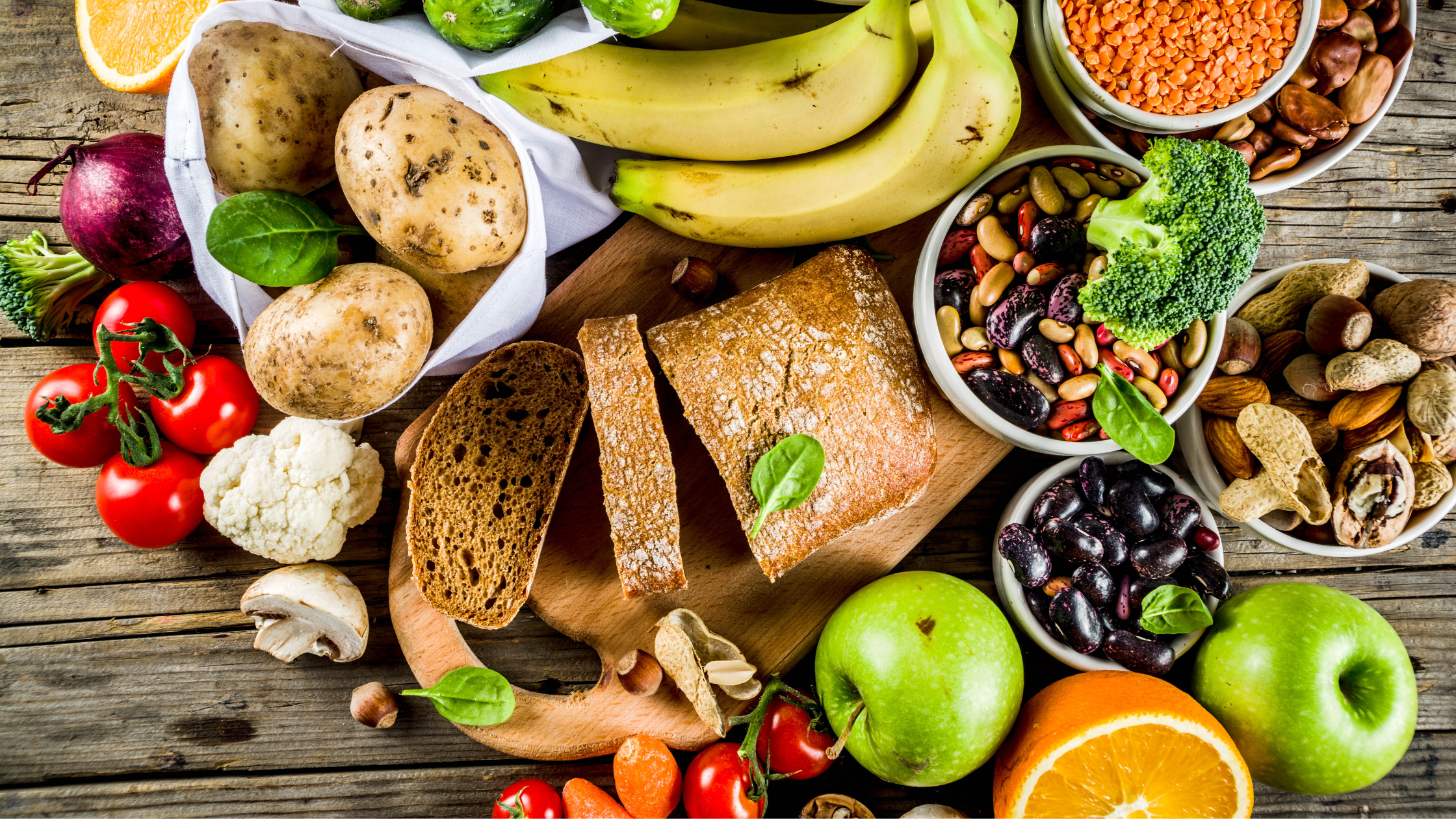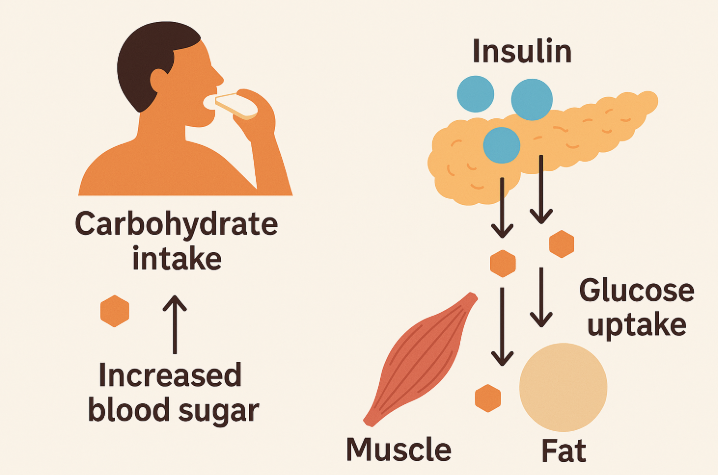Is avoiding carbs necessary for weight loss?
11. April, 2025

Healthy eating
Carbohydrates have been a controversial topic in the world of weight loss for years. Some consider them the main culprit of weight gain, while others claim that carbohydrates are an essential part of a healthy diet. So, is avoiding carbs truly necessary to lose weight, or is this just a myth? In this blog post, we’ll explore science-based facts about the role of carbohydrates in weight management.
What are carbohydrates and how do they affect weight?
Carbohydrates are one of the three macronutrients (along with proteins and fats) that provide energy to the body. They are found in various foods, such as grains, fruits, legumes, desserts, breads, and dairy products. Carbohydrates are divided into simple (sugars) and complex (starches and fibers) types. Complex carbohydrates, found in whole grains and vegetables, digest more slowly and help keep blood sugar levels stable.
From a weight loss perspective, the quality of carbohydrates is more important than the quantity. Refined carbohydrates found in processed foods, such as white flour and sugar, can cause rapid spikes in blood sugar and insulin levels, which may promote fat storage. On the other hand, whole grains and fiber-rich carbs are associated with better weight
Insulin resistance – not just a problem for those who has diabetes.
The hormone insulin plays an important role in exactly how carbohydrate consumption affects blood sugar levels. Insulin is a hormone produced by the beta cells of the pancreas and plays a central role in blood sugar or glucose metabolism. Insulin allows glucose to enter cells (especially muscle and fat cells), where it is used to produce energy or stored as glycogen in the liver and muscles. In addition, insulin regulates the metabolism of fats and proteins and inhibits the production of glucose by the liver (gluconeogenesis). Insulin resistance is a condition in which the body’s cells respond less effectively to insulin – glucose transport into the cells is reduced, although the level of insulin in the blood is high. The pancreas compensates for this by increasing insulin production at first, but in the long term this can lead to the development of type 2 diabetes. The main cause of insulin resistance is excess weight, especially visceral obesity (fat accumulates in the stomach area). Adipose tissue produces inflammatory cytokines that interfere with the function of insulin. In addition, insulin resistance can be caused by the constant consumption of refined carbohydrates and sugar. Constantly high blood glucose levels can lead to cells becoming insensitive to insulin. Therefore, it cannot be said that insulin resistance is only a concern for diabetics.

Do low-carb diets help you lose weight?
Low-carb diets, such as the ketogenic diet and Atkins, are popular weight loss methods. Studies show that they can help you lose weight, especially in the short term. Overall, however, researchers have found that both low-carb and low-fat diets can lead to significant weight loss, but in the long term, the results depend primarily on the overall calorie deficit.
It has also been shown that restricting carbohydrates reduces the amount of glycogen stored in the body and the water it contains, which can give the impression of rapid weight loss. However, this does not necessarily mean fat loss, but mainly water loss. So yes, low-carb diets can help you lose weight, but it is important to remember that you should not leave your body in a severe nutritional deficit and that the diet should be followed skillfully (it is strongly recommended to consult a nutritionist).
Is it necessary to completely avoid carbohydrates?
Completely eliminating carbohydrates from your diet is not necessary for weight loss. In fact, healthy sources of carbohydrates can support long-term weight loss and overall health. For example, high-fiber carbohydrates help keep you full and support digestion. In addition, diets that are moderate in carbohydrates and fats, such as the Mediterranean diet, have been shown to also help with weight loss and improve heart health. The Mediterranean diet is an eating pattern based on the traditional eating habits of Mediterranean countries, such as Greece and Italy. It emphasizes plenty of vegetables, fruits, whole grains, legumes, nuts, seeds, and olive oil, moderate consumption of fish and poultry, and limited amounts of red meat and processed foods. It also emphasizes eating slowly, enjoying family meals, and moderate wine consumption. Studies have shown that the Mediterranean diet can improve heart health, support weight loss, and reduce the risk of chronic diseases.
How to balance your carbohydrate intake?
If you want to lose weight, it is important to focus on high-quality carbohydrates and avoid refined and highly processed carbohydrates. Here are some suggestions:
• Choose whole grains (whole rice, quinoa, whole bread, oats, buckwheat)
• Eat more fiber-rich foods (vegetables, berries, nuts, seeds)
• Avoid sugary drinks, sugary dairy products and sweets
• Balance your diet – eat enough protein and healthy fats along with carbohydrates to keep your blood sugar stable
• Keep your meals regular – avoiding long pauses between the meals helps to prevent fluctuations in blood sugar and excessive hunger
• Add protein and healthy fats to your diet – nuts, avocado and fish, for example, help slow down the absorption of carbohydrates and reduce blood sugar fluctuations
Avoiding carbohydrates completely is not necessary to achieve weight loss. What matters is the quality of carbohydrates and their role in your daily diet. By focusing on a balanced diet that includes high-fiber carbohydrates, protein, and healthy fats, you can keep your weight under control without resorting to extreme diets.
Smoothie – a weight loss aid?
Smoothies can be a great support on your weight loss journey, but only if they are made correctly. A balanced smoothie helps reduce appetite, keeps blood sugar stable and ensures a feeling of fullness for a longer period of time. A smoothie that supports weight loss should contain high-quality protein, fiber and moderate carbohydrates – preferably from fruits or berries with a low glycemic load. It is important to avoid excessive fruit sugar and added sweeteners, as they can cause blood sugar fluctuations and inhibit fat burning.
The ABCs of making a smoothie: Always start with protein (for example Be More pea protein), add fiber (e.g. flaxseed, inulin or oatmeal), then a handful of berries and finally something green (like spinach or kale). This way you keep the smoothie balanced and your body satisfied! Use water or kefir as a liquid.
Also check out Be More’s superfood powders that support weight loss by containing fiber and protein: Be Slim and Liver Detox.
Used sources:
1 Ludwig, D. S., et al. (2018). Effects of a low carbohydrate diet on energy expenditure during weight loss maintenance: randomized trial.
2 Reynolds, A., et al. (2019). Carbohydrate quality and human health: a series of systematic reviews and meta-analyses.
3 Gardner, C. D., et al. (2018). Effect of low-fat vs low-carbohydrate diet on 12-month weight loss in overweight adults and the association with genotype pattern or insulin secretion.
4 Hall, K. D., et al. (2016). Calorie for calorie, dietary fat restriction results in more body fat loss than carbohydrate restriction in people with obesity. Cell Metabolism.
5 Estruch, R., et al. (2013). Primary prevention of cardiovascular disease with a Mediterranean diet. The New England Journal of Medicine.